Guinea: Building better conditions in prisons
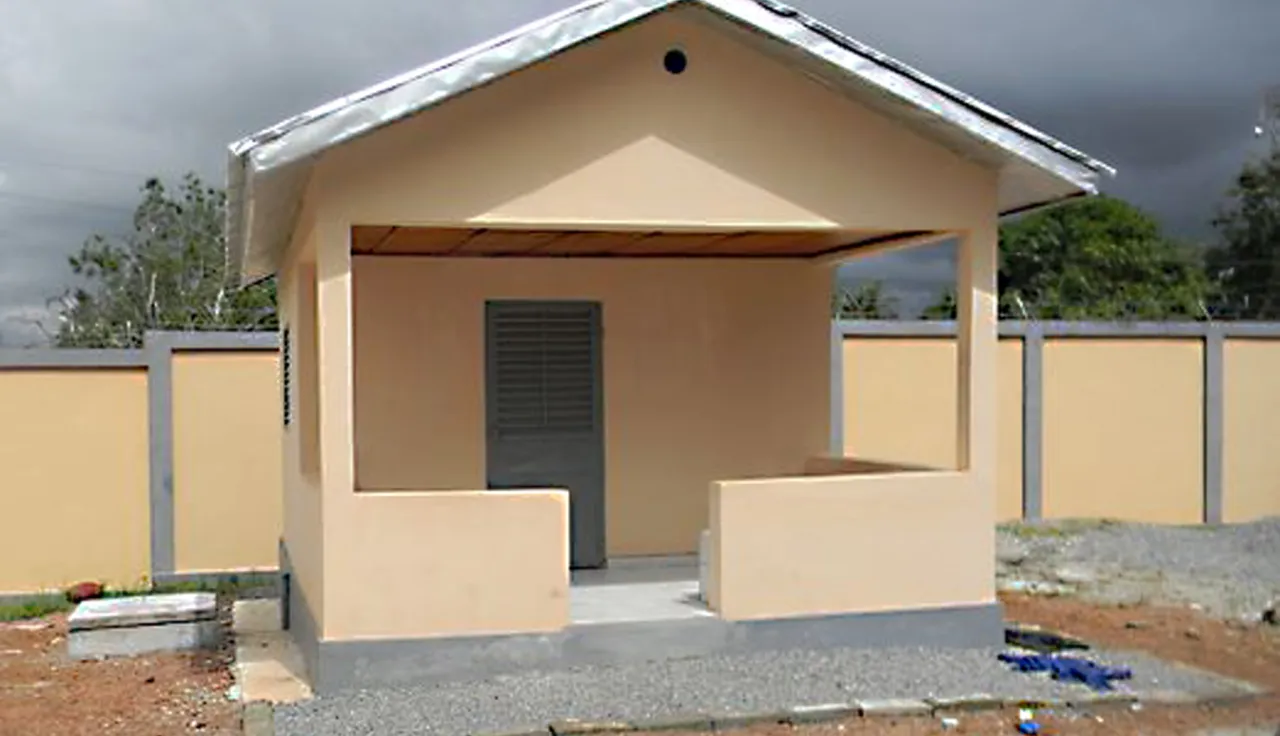
The ICRC regularly visits prisons to assess living conditions and works with the authorities to improve them. In Guinea, for instance, renovations we carried out to prisons in Dubréka and Fria have made a big difference to the daily lives of detainees.
A safe place for women
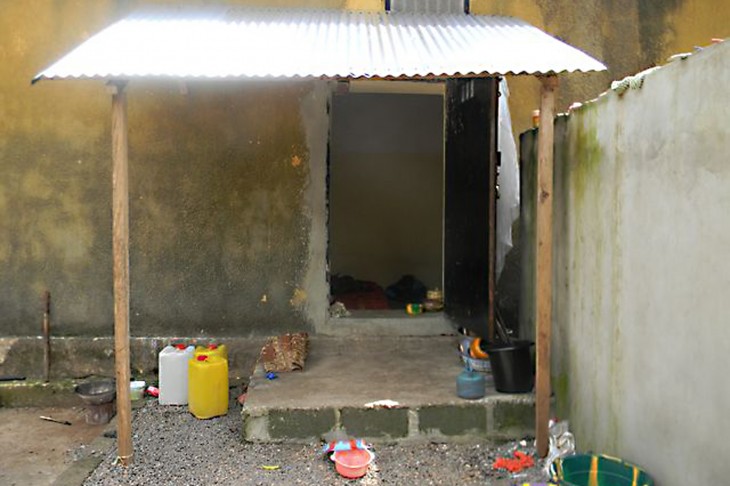
Dubréka Prison, Guinea, July 2015. Entrance to the new room for women. CC BY-NC-ND / ICRC / D. Fofana
In the past, there were no cells for women in Dubréka. They spent their days in the yard and nights in the prison kitchen. So, working with the authorities, we provided a room specially for them. "We were sleeping in soot and ashes, so you can imagine how glad we are now. It's clean and we can breathe!" one woman said. The prison authorities were also delighted with the improvement. "Since the new room has been built, I can rest easy," said the governor. "The women are so much safer now."
Medical treatment with dignity
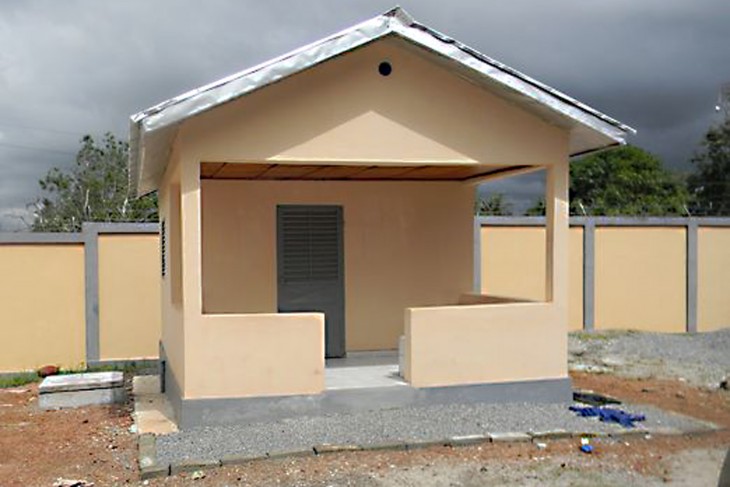
Dubréka Prison, Guinea, July 2015. Dignity for detainees in the new infirmary. CC BY-NC-ND / ICRC / D. Fofana
Health care for detainees is very important. But in Dubréka, detainees were examined in their cells, or sometimes in the governor's office. In Fria, the prison had no infirmary and patients were examined in the women's cell, with women present. So, we converted a room into an infirmary in both prisons where they could be treated safely, in private. "Thanks to the infirmary, the prison's health staff have better conditions to work in and it's easier to treat our patients," explained Dr Popol Lobo-Biduaya, who coordinates the ICRC's medical work in detention facilities.
Building toilets and mending a leaky roof

Dubréka Prison, Guinea, July 2015. Building new toilets has improved hygiene. CC BY-NC-ND / ICRC / D. Fofana
The outdoor latrines in Dubréka were in a very poor state of repair and discharged sewage into open-air drains. But now that we've built a toilet block to replace them, things are much pleasanter. "No more revolting, tumbledown latrines! No more foul smells when we go out to the yard for fresh air!" said one detainee.
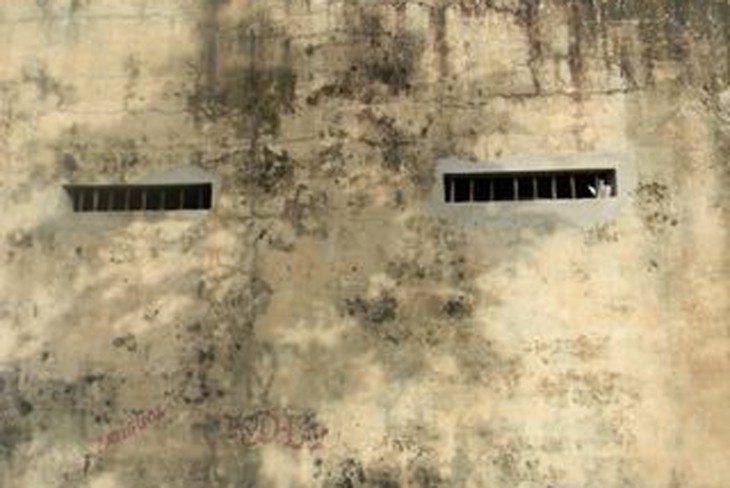
Fria Prison, Guinea, July 2015. Barred windows to let in fresh air. CC BY-NC-ND / ICRC / D. Fofana
In Fria, sealed cells made the heat suffocating. We installed barred windows to increase ventilation and let in the daylight, improving detainees' physical and mental well-being. One said gratefully, "Thank you so much! The air is cleaner now and we sweat less. And we're not in the dark during the day anymore."
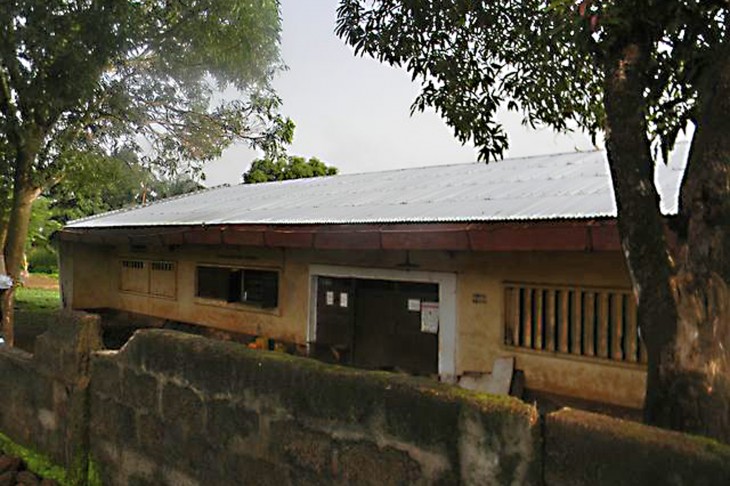
Fria Prison, Guinea, July 2015. A new roof for the rainy season. CC BY-NC-ND / ICRC / D. Fofana
We mended the leaky prison roof (damaged during a demonstration by local people), so detainees have shelter in the rainy season.
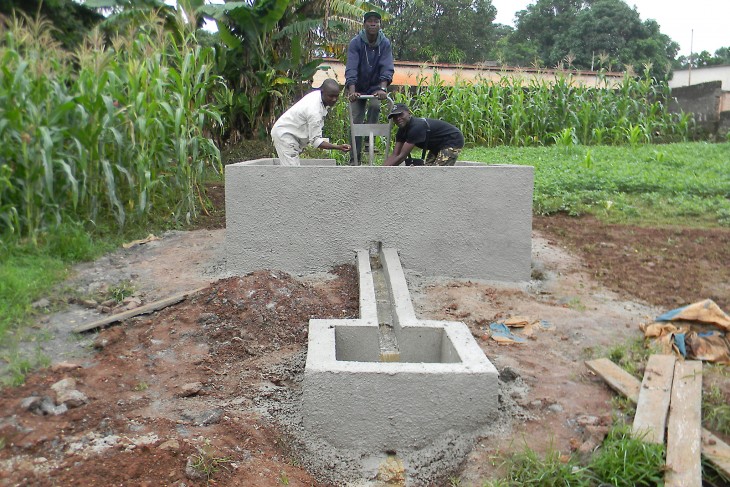
Fria Prison, Guinea, July 2015. A new pump to supply drinking water. CC BY-NC-ND / ICRC / D. Fofana
We also drilled a borehole and installed a foot-operated pump and tank to store water. This will provide clean drinking water not only for detainees, but also for people living nearby.
In Guinea, between January and September 2015, we:
- visited 76 permanent detention facilities and 13 temporary ones;
- took 99 Red Cross messages from detainees to their loved ones;
- covered the medical expenses of 11 particularly vulnerable detainees;
- treated 84 detainees suffering from severe malnutrition and 1,391 with moderate malnutrition;
- treated 618 detainees suffering from beriberi, a potentially fatal disease caused by a vitamin B1 deficiency.



